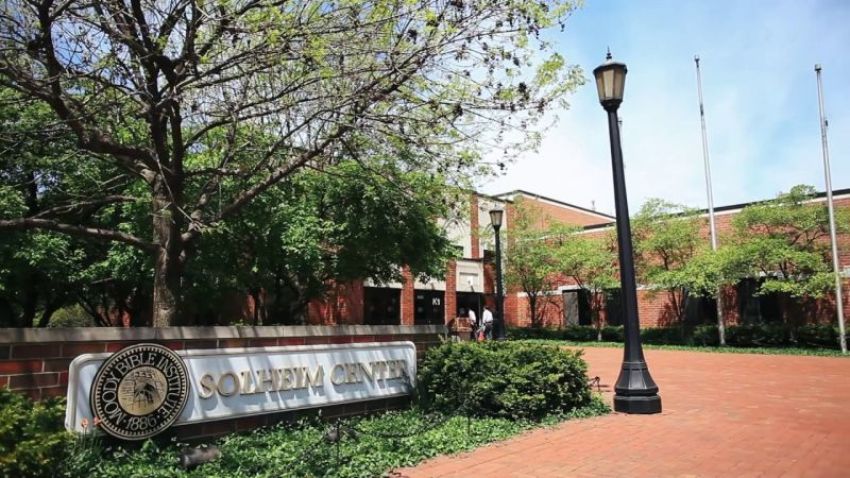Moody Bible Controversy: Former Employee Reveals Confusion Over Inerrancy of Scripture

Following the resignation of top leaders at Moody Bible Institute amid controversy, some have now detailed their concerns about the theological direction of the institution, especially over the inerrancy of Scripture.
In a post on her blog late Thursday, Julie Roys, formerly the host of Moody Radio broadcast "Up for Debate," a show that has been canceled, noted that despite assurances from leadership of "no [doctrinal] drift" at the school, some professors at Moody now sign their names to statements of faith while saying they believe otherwise.
As confusion swirls over definitional minutiae, at particular issue is the school's stated position on biblical inerrancy, the doctrine that the Bible is "free from error." Roys explained that the theological statement pertaining to inerrancy that the Moody uses was written 90 years ago, long before anyone could have foreseen how the influence of postmodernism would render the meanings of words meaningless.
Roys commented in an email to The Christian Post Monday that she knows from her discussions with several trustees in the weeks leading up to the shakeup — MBI President Paul Nyquist and COO Steve Mogck resigned, and Provost Junias Venugopal retired earlier this month — that "the previous administration's failure to hold the line on this issue was a major reason some trustees felt the leaders should go."
"But the new administration doesn't seem to be responding any differently, so I'm profoundly confused," Roys said.
She elaborated on her blog that MBI has never formally adopted the Chicago Statement on Biblical Inerrancy, a 1978 consensus document signed by over 300 evangelical scholars that was published in defense of the inerrancy of Scripture against what many considered to be a liberal trajectory within evangelical Christianity. But that statement has served as the standard that they have affirmed in all of their theology classes, according to MBI theology professor Richard Weber. He told Roys when he was interviewed for his position 15 years ago, MBI adheres to the Chicago Statement.
Yet at a Bible/Theology Division meeting just over a year ago, Weber said he was surprised to hear two theology professors — Ashish Varma and David Tae-Kyung Rim say that they did not hold to a "correspondence view of truth," the view on which the Chicago Statement is based. The two have also reportedly disclosed that they also reject the Chicago Statement's definition of inerrancy.
Weber, who is said to be one of the staunchest defenders of inerrancy at Moody, was one of the professors who was let go in November. Moody has said previously that the staff reductions were necessary and part of the new strategic choices the school made and their initiatives to better position the institution for future ministry and "continued Kingdom impact." Weber has been stripped of all his classroom responsibilities for the remainder of this year.
Roys told CP that Weber was "working on an elective on the topic [of inerrancy] because he realized how confused students were about the issue." CP reached out to Weber for comment on but did not hear back by press time.
In the present environment, "it is entirely possible for someone to sign a statement claiming that the Bible 'is free from error' and yet simultaneously admit to what many would consider errors," Roys wrote Thursday.
"The question facing the Moody Bible Institute today is not whether all its professors have signed a doctrinal statement on inerrancy, but what do they mean when they sign that statement?" she asked.
Roys stressed that MBI still needs to make clear whether or not it affirms the Chicago Statement and if postmodern views of truth are aligned with its doctrinal statement. But thus far the administration is not speaking.
"Certainly, Moody is facing an unprecedented crisis in its long and illustrious history, and inerrancy is only one of several issues leadership must address. But inerrancy is arguably the main issue because so much in Christianity hinges on our view of Scripture," she said.
Weber made several appeals to the administration and trustees over this issue, ultimately reaching out to now former President Nyquist and specifically inquiring what the doctrinal statement means by the phrase "without error."
Nyquist replied: "We require faculty to affirm our doctrinal statement. The Chicago statement, written decades later, is not identical to our doctrinal statement. If a person affirms our doctrinal statement they are able to teach at Moody."
Such an inadequate answer reveals how Nyquist's administration, Roys argued, has "opened the door to postmodern understandings of inerrancy." The school must decide if it is going to close that door, or continue on its current, unstable course, she said.
"Clarify inerrancy so there is absolutely no question what Moody means by the term or where it stands. And then expect God's blessing. It may take a year, or as many as five or 10, but God will bless if MBI is faithful."
The former Moody Radio host has been among the most vocal people once or currently affiliated with the school in calling attention to some of the systemic problems, sketchy financial moves, and the culture of "self-dealing" at the Bible school named after evangelist Dwight L. Moody, founded in 1886. In addition to letting go approximately one third of its Chicago faculty, they have also closed their Spokane, Washington, campus and their distance learning extension site in Pasadena, California.



























